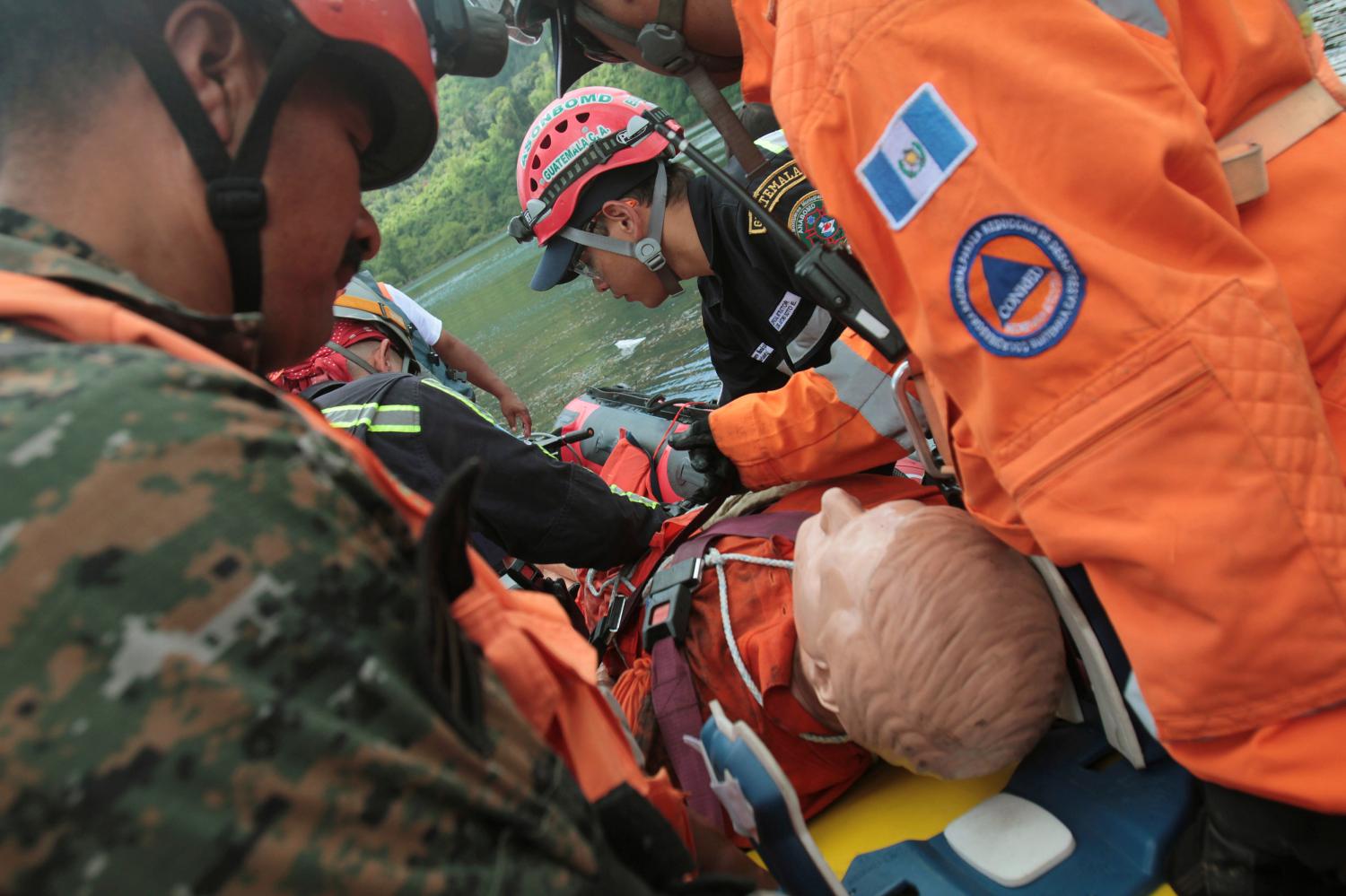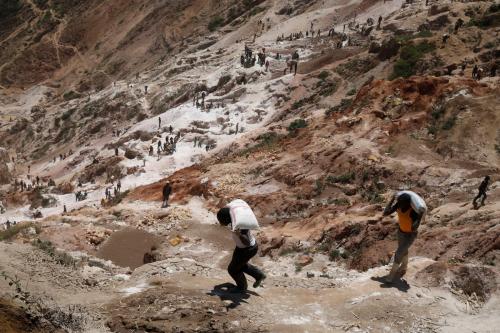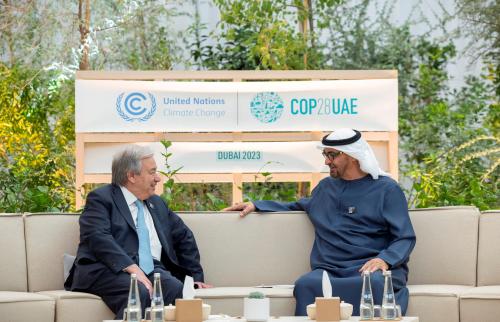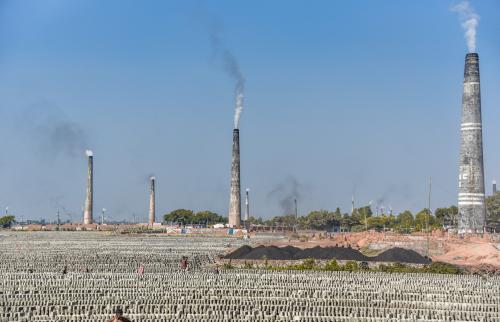When a disaster strikes, national disaster management organizations (NDMOs) are called to respond quickly and effectively, usually in collaboration with local governmental authorities. These are the governmental agencies that are on the front lines of response and increasingly on the front lines of efforts to reduce the risk of disasters. For many years, international humanitarian organizations and bilateral aid donors have worked to strengthen the capacity of NDMOs. But, in spite of a growing literature on the role of regional organizations in disaster risk management, there have been few efforts to assess the role of regional organizations in building the capacity of NDMOs.
The Brookings-LSE Project on Internal Displacement, with the support of the Australian Civil-Military Centre, is currently undertaking field-based research on the role of three regional organizations – the Association of Southeast Asian Nations, the South Asian Association for Regional Cooperation (SAARC), and the Pacific Islands Forum/South Pacific Community – in building capacity of national disaster management organizations. This initiative builds on our 2013 study, In the Neighborhood: The Role of Regional Organizations in Disaster Risk Management, which provided a global overview of the expanding involvement of regional organizations with a particular emphasis on regional actors in the Pacific and the Caribbean. The study identified some of the particular strengths of regional approaches to disasters. For example, in the Pacific region, regional organizations were found to have clear comparative advantages including: “political convening power through strong links with the region’s leaders; key coordinating roles at the regional level; information management and dissemination through portals, provision of education, training and applied research; faith-based perspectives and actions in disaster risk management; representatives of, and advocates for, vulnerable groups (e.g. women, disabled, youth); and their extensive and broad regional experience.” Because of their close ties with member governments in the region, their activities may be viewed as more culturally and politically appropriate than those of international organizations.
While regional actors play important roles, it is the state itself that bears primary responsibility for preparing for and responding to disasters occurring in the area under its jurisdiction through its national disaster management organization. Though regional mechanisms may provide an important coordinating function and can effectively mobilize a regional response to a disaster (e.g. the case of the Association of Southeast Asian Nations in response to Cyclone Nargis), perhaps the most important role they play is to increase the capacity of key national institutions.
The 2013 research found that about half of the regional organizations surveyed were active in the areas of capacity building, research, and technical cooperation. For some organizations, such as the Caribbean Disaster Emergency Management Agency, training is an important part of the disaster management framework. The South Asian Association for Regional Cooperation’s core institution, the SAARC Disaster Management Centre, seems to be mainly focused on research and training activities. In the Pacific, several organizations involved in the design and delivery of emergency management training have formed the Pacific Emergency Management Training Advisory Group. In many cases, regional organizations cooperate with international actors in research and training and serve as important conveners for regional training activities and/or research projects. As many regional organizations engage in collecting information, they are also important resource centers not only for governments in the region but also for practitioners and academic researchers.
This short review, based on desk research, surveys literature on the work of regional organizations and NDMOs in disaster risk management and draws out some of the themes that may be useful for further examination of the relationship between regional bodies and national organizations in disaster risk management.




